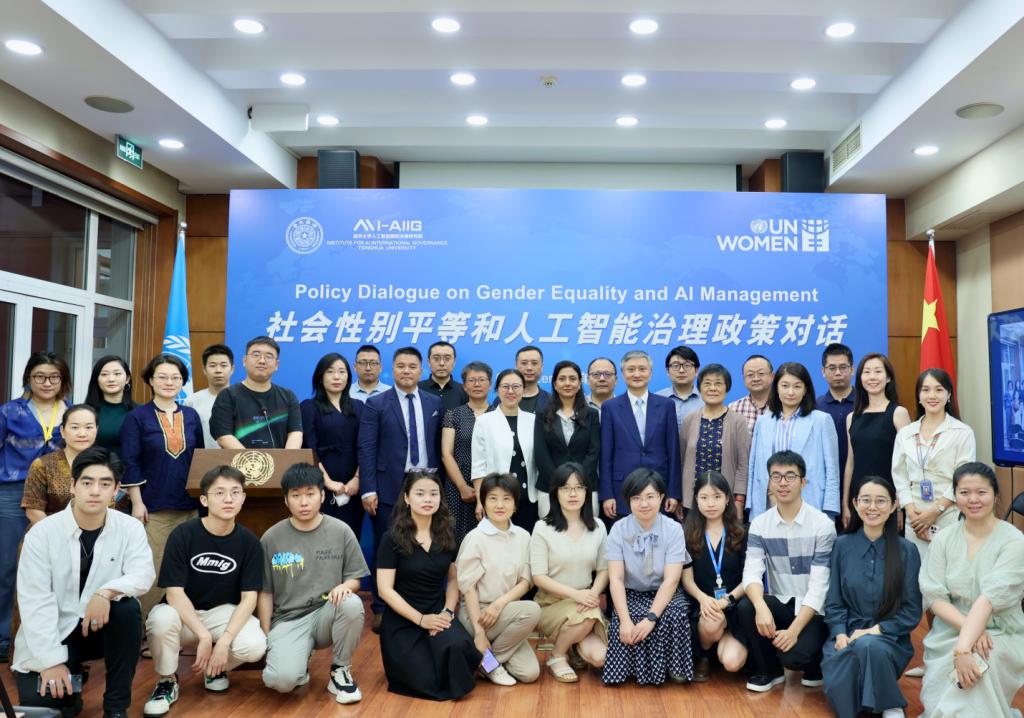On the morning of June 28 (Beijing Time), “Policy Dialogue on Gender Equality and AI Management”, jointly organized by UN Women China and the Institute for AI International Governance of Tsinghua University (I-AIIG), was successfully held in the conference room of the UN headquarters of China in Beijing. Smriti Aryal, Head of the office to China at the representative level appointed by UN Women, and Lu Junqun, Secretary-General of I-AIIG, Executive Vice President of the American Returned Scholars Association of Western Returned Scholars Association (W.R.S.A), and Executive Director of the Artificial Intelligence and Digital Economy Center of W.R.S.A attended the event and delivered opening speeches. Xiao Qian, Vice Dean of I-AIIG, presided over the opening ceremony and keynote speech sessions.
Smriti Aryal mentioned in her speech that AI and related technologies that are developing rapidly and widely applied to various fields of our life not only have great potential for promoting positive changes, but also pose risks of deeper divides and wider inequalities. It is important to ponder over the opportunities and risks that AI presents if we want to build a more resilient future. As pointed out at the 67th Session of the Commission on the Status of Women (CSW67), it is critical to strengthen fairness, transparency, and accountability in the digital age; prioritize digital equity to close digital divides; foster gender-responsive digital and science and technology education; ensure the full, equal and meaningful participation and leadership of women; enhance digital science; and leverage financing for inclusive digital transformation towards the agenda on gender equality.
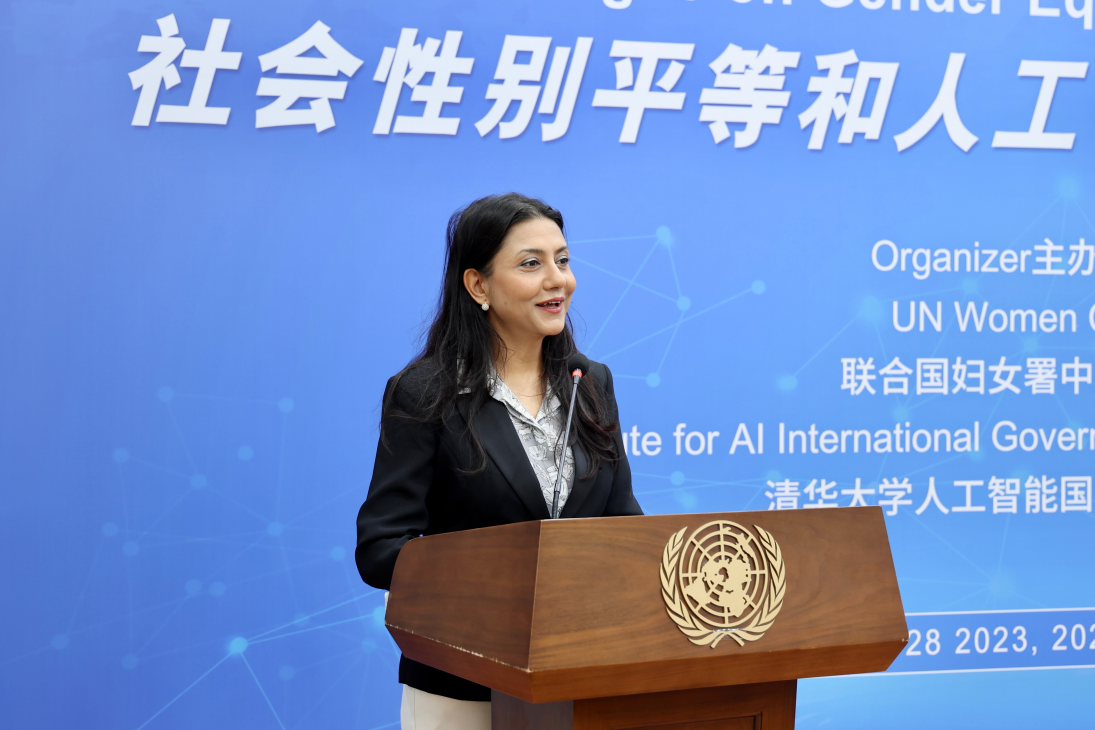
Lu Junqun, on behalf of I-AIIG, first expressed his welcome and thanks to all the guests, media and audience. He pointed out that AI technology has greatly influenced human work and life, and AI governance has become an important global agenda. The possible gender discrimination in AI system is one of the key factors that affect the development of Tech for Good. He hoped that this Policy Dialogue can promote the exchanges and cooperation among all sectors of society and facilitate the establishment of a more just and inclusive AI governance system.
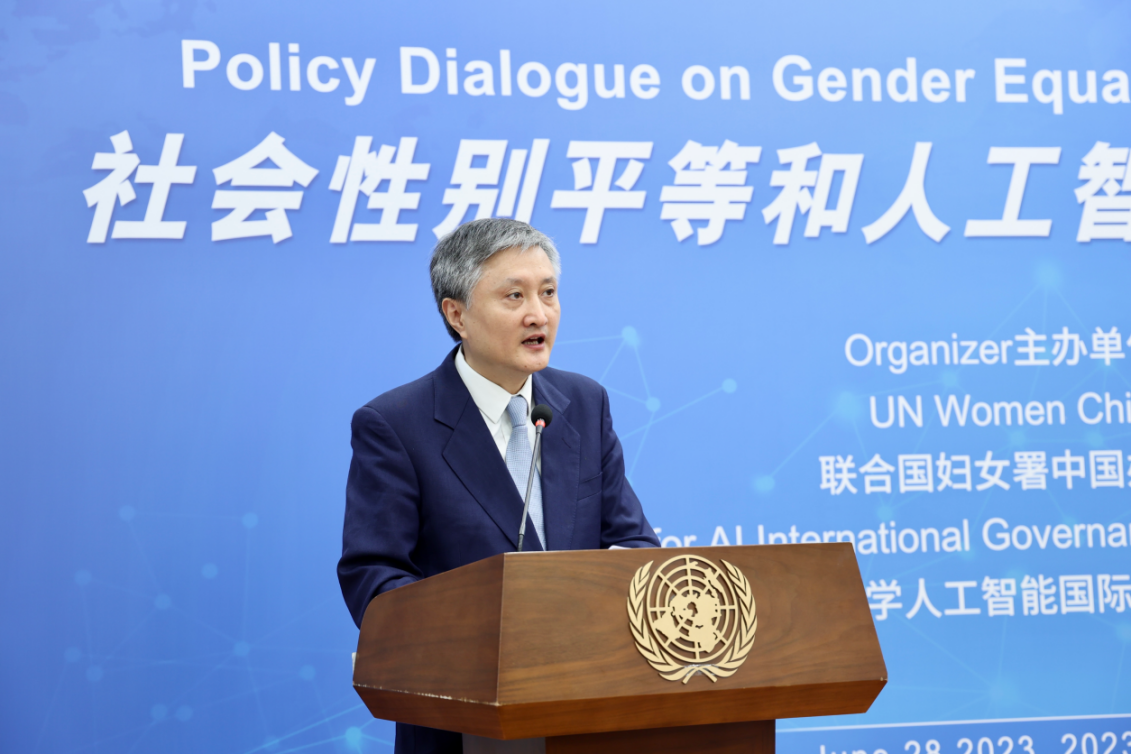
Yu Yang, Assistant Professor of the Institute for Interdisciplinary Information Sciences at Tsinghua University (IIIS), delivered a keynote speech on the theme of “Focusing on Gender Discrimination in AI Algorithms.” He attributed the discrimination to the prediction mechanism based on data correlations. AI discrimination is different from human discrimination, and the fairness audit of machine intelligence is different from that of the platform. He emphasized that the governance of social discrimination in AI is an issue of risk management that requires audit on and reduction of the probability of social risks brought about by the use of technology and adopting insurance and other methods to hedge against potential risks. For example, when it comes to occupational gender stereotypes, the probability that gender prediction bias in AI coincides with human stereotypes is determined by technical characteristics such as the bias and efficiency of AI models. The former would lead to conceptual discrimination and errors while the latter would lead to efficiency-related discrimination and errors. Finally, he pointed out that the audit and governance of gender equality in AI can not only promote AI development but also empower the development of human civilization.
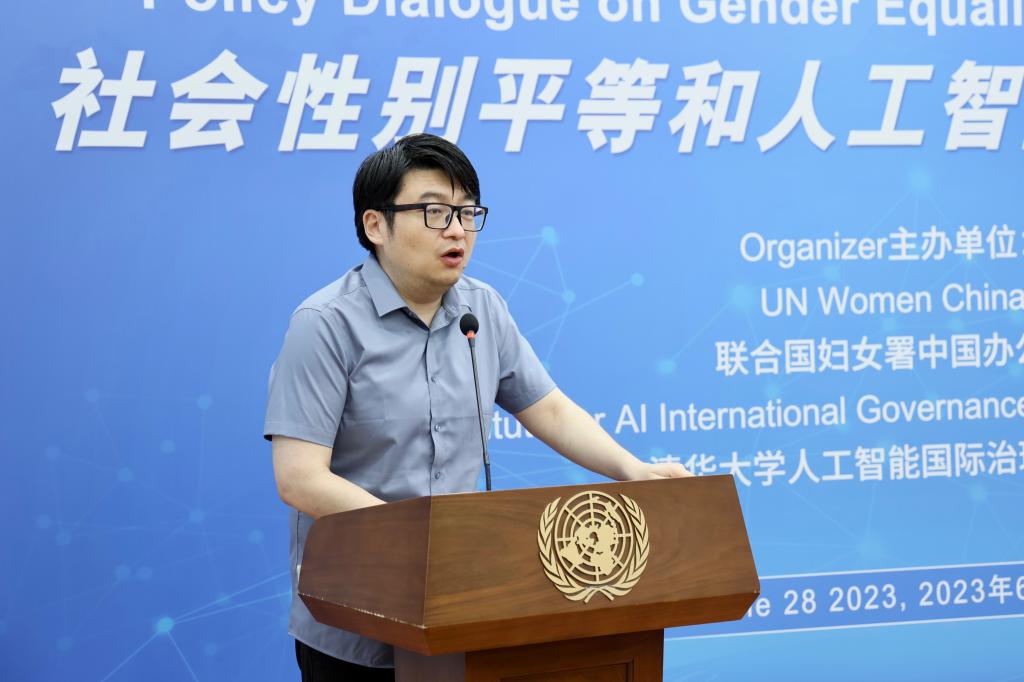
Zhou Peiqin, Associate Professor of Nanjing University, shared a research report on gender gap in AI-related employment. According to her report, compared with women, men are always considered more suitable for the computer industry; the male-dominated “geek culture” is widely accepted across the industry and gender discrimination in AI is mainly reflected in preferential recruitment of male employees, unequal pay for equal work, and greater likelihoods of promotion for male employees.
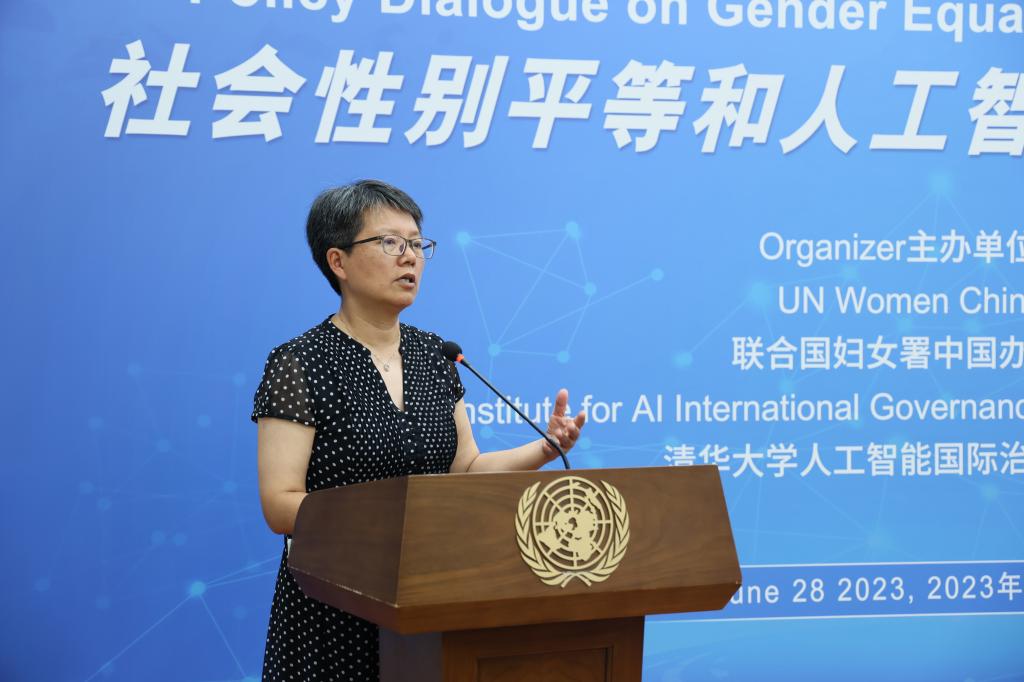
Professor Liu Bohong, a well-known expert on gender issues, analyzed the Third Gender Equality Report of the German Federal Government. She pointed out that the Report mainly answered the question: “What steps need to be taken to shape the developments of the digital economy in such a way that women and men gain equal capabilities?” Professor Liu expounded the core ideas and contents of the Report from the access, usage, and establishment of gender equality in digitalization, gender-equitable digitalization, and structures and tools that strengthen gender equality policy.
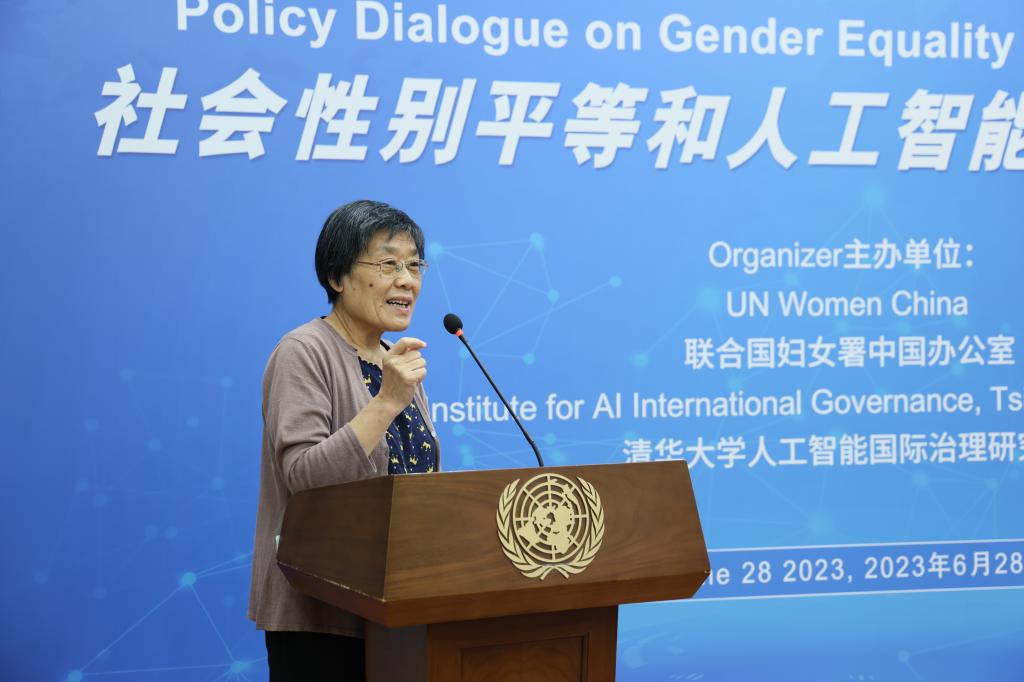
During the roundtables moderated by Ma Leijun, Programme Officer of UN Women, Zhang Wei, Assistant Resident Representative of United Nations Development Programme, Wang Lei, Secretary-General of Shanghai Association of Artificial Intelligence and Professor of Tongji University, Fang Wei, Secretary-General of JiangSu Association of Artificial Intelligence, Cao Jianfeng, Senior Research Fellow of Tencent Research Institute, and Zhang Xin, Professor of University of International Business and Economics, discussed how to narrow the gender gap in AI, incorporate the gender perspective into AI algorithm research, and promote feasible governance measures for equal benefits of AI applications to people of different groups.
